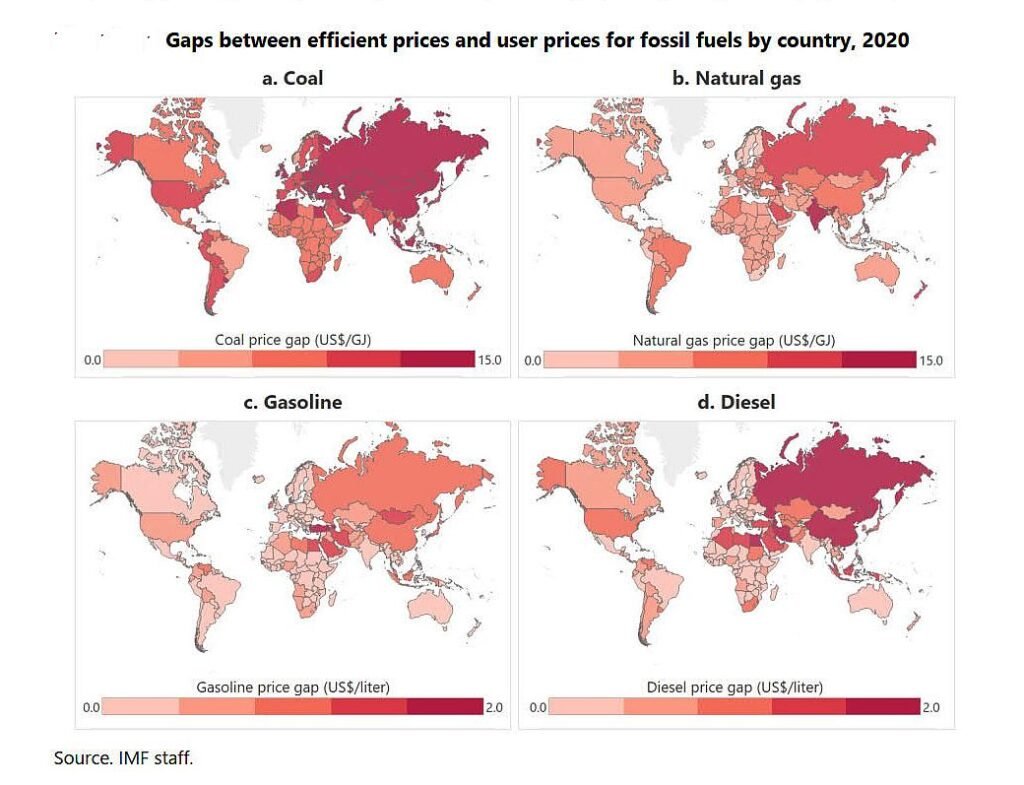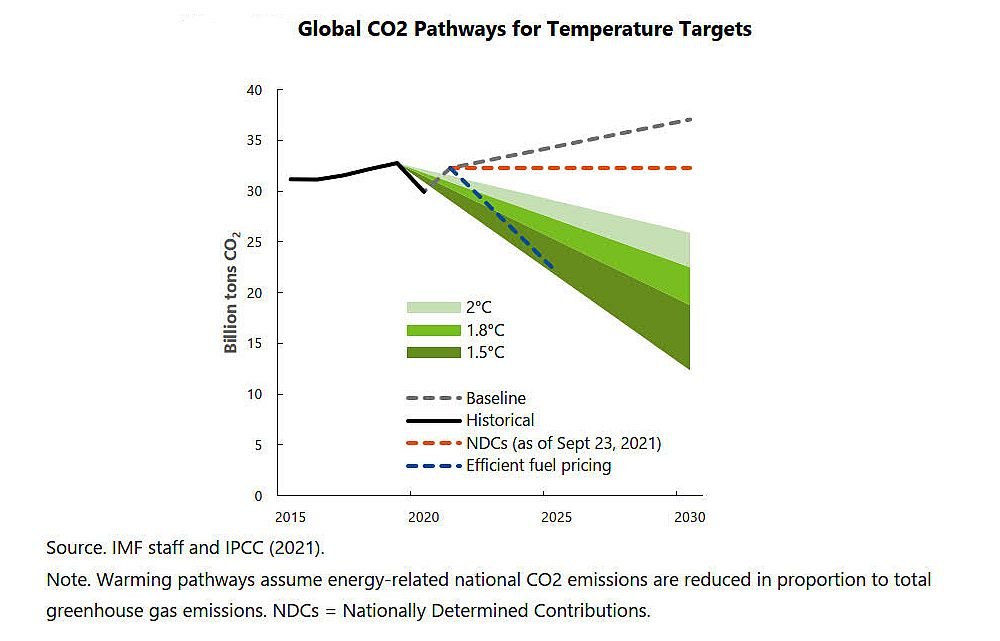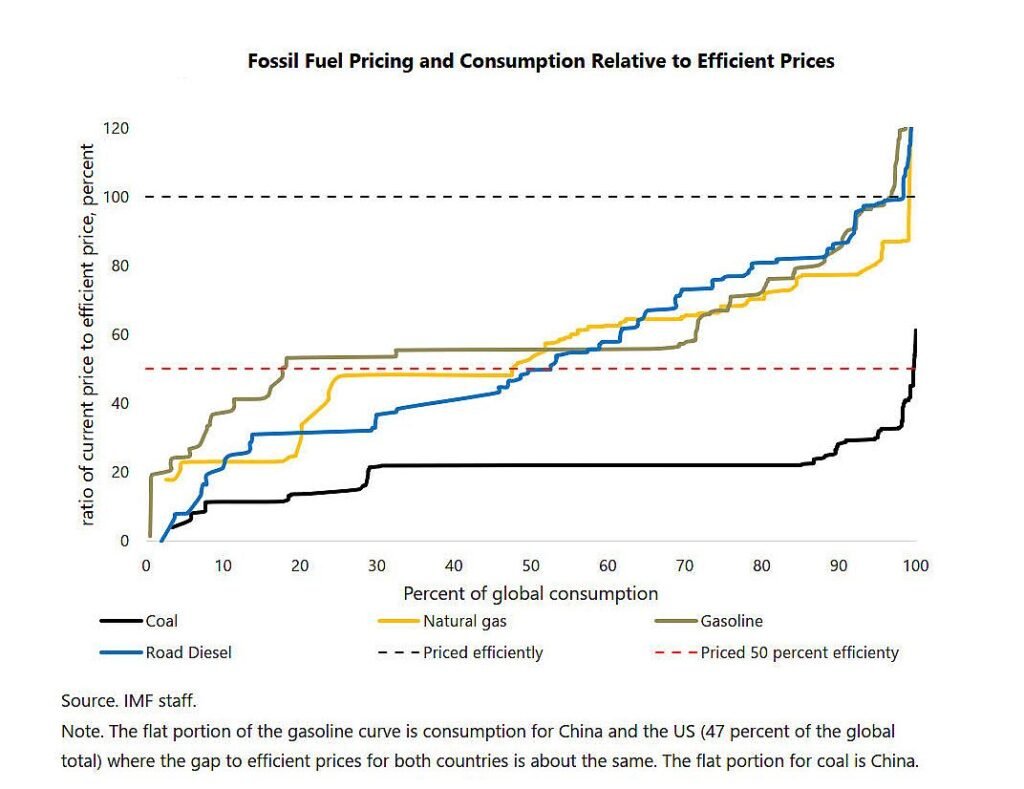According to the latest IMF analysis, the fossil fuel industry will receive $5.9 trillion in direct and indirect subsidies in 2020. This is an increase from the IMF’s 2014 estimate of $2 trillion.

This amount includes intangibles such as tax benefits, health care expenditures connected with inhaling the chemicals they spew into the sky, and environmental consequences like as stronger storms, rising sea levels, drought, and forest fires.
These are all economic costs that are not factored into the price of coal, oil, or natural gas. Economists refer to these costs as “untaxed externalities,” which is a fancy way of saying that fossil fuel companies profit financially from the fact that society does not require them to fully account for the harm caused by their products.

In other words, the report states that 47% of natural gas and 98% of coal are priced below their true cost. This under-pricing results in excessive consumption of fossil fuels, which accelerates global warming and exacerbates domestic environmental problems, such as loss of life due to local air pollution, excessive traffic congestion, and accidents.This alarming aspect of the global economy is highlighted in the IMF report.

A $5 trillion investment by 2030, according to the IEA’s net-zero roadmap, is needed to put the world on a climate-safe path. It’s infuriating to consider how quickly things could have changed if governments in many big nations weren’t so tightly tied to the fossil fuel business.
Reference- IMF Report, The Guardian, Mercom India, Business Insider






